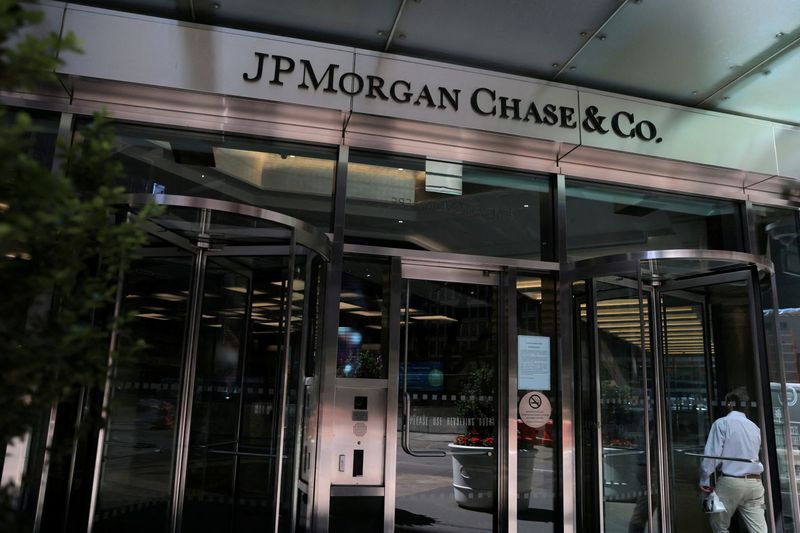US bank stocks rise as jumbo rate cut eases default risk, cost concerns

By Niket Nishant and Manya Saini
(Reuters) -U.S. bank stocks rose on Thursday, a day after the Federal Reserve cut interest rates by 50 basis points, which is expected to reduce deposit costs and alleviate pressure on borrowers.
Elevated interest rates have weighed on loan growth and consumer spending this year, while also increasing fears of borrowers defaulting on their loans.
Commercial real estate loan portfolios have been under immense pressure due to high rates and lack of demand for office spaces, prompting banks to set aside billions as a cushion against delinquencies.
"For banks, particularly those that hold mortgages and auto loans, there may be a benefit to spreads in the near term," said Charlie Wise, senior vice president and head of global research and consulting at TransUnion.
Investment bank Goldman Sachs led gains in large-cap bank stocks with a 2% rise, followed by Citigroup and Bank of America, which climbed 1.4% and 1.3% respectively.
Wells Fargo climbed 0.8% while JPMorgan, the largest U.S. bank by assets and the sector's bellwether, was last trading 0.4% higher. Wall Street powerhouse Morgan Stanley was also up 0.5%.
REFINANCING WINDOW
Most auto loans and mortgages carry a fixed rate of interest, which means banks will continue to fetch higher yields even after the cut.
Borrowers looking for immediate relief could also refinance their loans and negotiate better repayment terms, lowering the risk of defaults. Top banks echoed the Fed's move and reduced their prime lending rates on Wednesday, giving consumers an immediate reprieve on borrowing costs.
Regional banks are expected to benefit more from rate cuts, compared with their larger rivals, as elevated deposit costs normalize and the demand for loans recovers.
"We expect a lower funds rate to ignite commercial borrower demand for loans," said J.P. Morgan analyst Steven Alexopoulos. "The Fed cut reduces uncertainty over the borrowing costs and the economy."
Valley National led gains in regional banks with a 2.9% rise. Banc of California, KeyCorp, Western Alliance and Regions Financial rose between 1.2% and 1.6%.
"The initial positive reaction by the bank stock indices makes sense, as a 50 bp cut takes the edge off the high-end credit concerns," analysts at Jefferies said.
"But leave open the question about the underlying economy today."
The S&P 500 Banks Index, which tracks large-cap banks, has gained 17.5% this year through previous close, compared with an 18% gain in the benchmark S&P 500. The KBW Regional Banking Index is up 4.4% over the same period.
Investor sentiment toward the sector had taken a hit after three major players collapsed in early 2023, in part due to higher rates racking up unrealized losses on their loan books.
"(The cuts) will be credit positive for banks' asset quality because lower rates make debt payments more affordable for borrowers with floating-rate loans," said Allen Tischler, senior vice president of Financial Institutions Group at Moody's Ratings.
Still, lenders are maneuvering a delicate economic environment. While investors expect the Fed to continue easing in the coming months, some have questioned if the central bank is behind the curve.
Fed Chair Jerome Powell said, however, that he doesn't believe the central bank waited too long.
(Reporting by Manya Saini and Niket Nishant in Bengaluru; Editing by Shailesh Kuber)
Breaking news
See all






